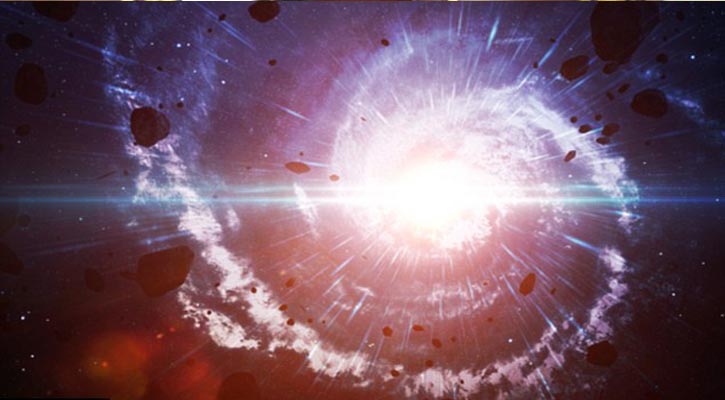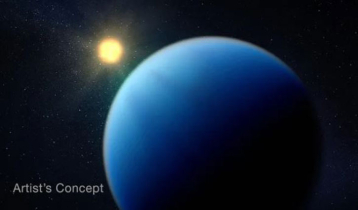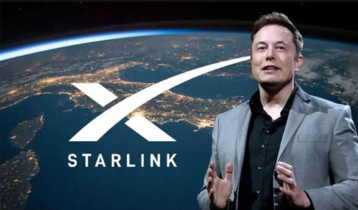What happened before the Big Bang?
4 || risingbd.com

Risingbd Desk: At the time of the Big Bang 13.8 billion years, all matter in the universe erupted from a singularity to create the cosmos that we know today.
But what happened before then? Professor Stephen Hawking says he might know.
In a new TV interview, the physicist says that 'nothing was around before the Big Bang'.
Instead, time and space existed in a 'bent state' that was distorted along another dimension, he claims.
Speaking on the latest episode of the National Geographic show 'Star Talk', which aired Sunday evening, Hawking, 76, described the beginning of the universe.
The physicist believes the Big Bang was the formation of what we now regard as time because the event broke down the laws of physics.
This means that anything that preceded it cannot be applied to our understanding of time and existence.Hawking uses the concept of space-time to describe his theory, which is measured in four dimensions.
In Sunday's interview, the physicist used the shape of the Earth as an analogy for the curved shape of the space-time continuum.
He said: 'In [the Euclidean approach] ordinary real time is replaced by "imaginary time", which behaves like a fourth direction of space.'
To visualise this, imagine a horizontal line with past running to the left and future to the right.
Professor Stephen Hawking believes that before the Big Bang 3.7 billion years ago, time and space as we know it did not exist.
According to his theory, the universe was shrunk and condensed to an incredibly dense ball of heat and energy the size of a single atom.
Inside this speck, the laws of physics and time as we know them cease to function, and time as we understand it did not exist.
If we move back in time from the Big Bang, the 'arrow' of time shrinks infinitely as the universe becomes smaller, never reaching a clear starting point.
Hawking said in an interview in March 2018 that before the Big Bang, time was bent - 'It was always reaching closer to nothing but didn't become nothing.'
Essentially, 'there was never a Big Bang that produced something from nothing. It just seemed that way from mankind's point of perspective.'
In a lecture on the so-called no-boundary proposal, Hawking wrote: 'Events before the Big Bang are simply not defined, because there's no way one could measure what happened at them.
Since events before the Big Bang have no observational consequences, one may as well cut them out of the theory, and say that time began at the Big Bang.'
If you then add a vertical line, this is what Hawking calls imaginary time, and is what was around before the Big Bang.
Essentially, there was no conceivable 'boundary' of time until the Big Bang.
'The boundary condition of the universe ... is that it has no boundary,' he said.
According to this theory, the history of the universe is not a flat line but a four-dimensional, curved object, 'like the surface of the Earth, but with two more dimensions', Hawking said.
He added that one can regard imaginary and normal space-time as beginning at Earth's south pole - a point where the normal laws of physics hold.
'There is nothing south of the South Pole, so there was nothing around before the Big Bang,' he said.
Instead, time and existence fans out from a single point, like the degrees of latitude on planet Earth.
According to Hawking, before the Big Bang, the universe was shrunk and condensed to an incredibly dense ball of heat and energy the size of a single atom.
Inside this speck, the laws of physics and time as we know them cease to function, and time as we understand it did not exist.
If we were to move back in time from the Big Bang, the 'arrow' of time shrinks infinitely as the universe becomes smaller, never reaching a clear starting point.
During the show, Hawking said that before the Big Bang, time was bent: 'It was always reaching closer to nothing but didn't become nothing.'
Essentially, 'there was never a Big Bang that produced something from nothing. It just seemed that way from mankind's point of perspective.'
Source: The Mail
risingbd/March 6, 2018/Mukul
risingbd.com























